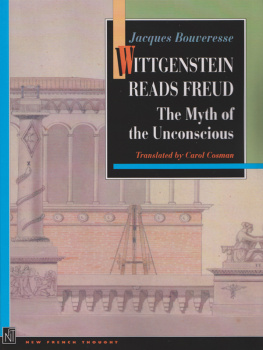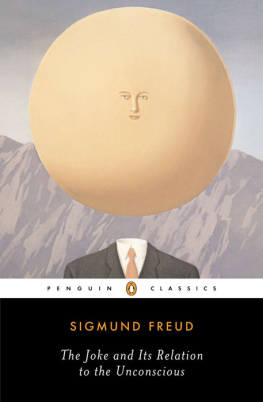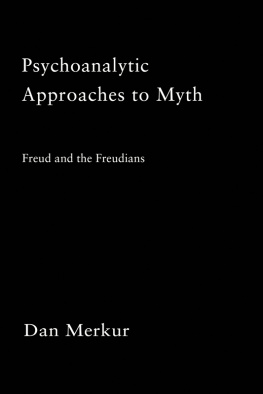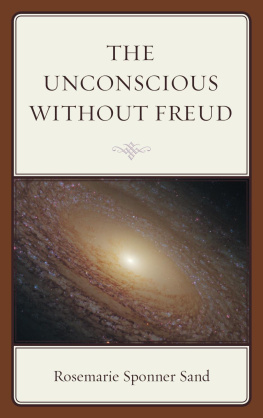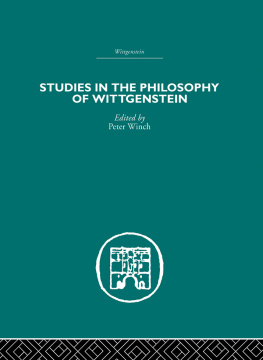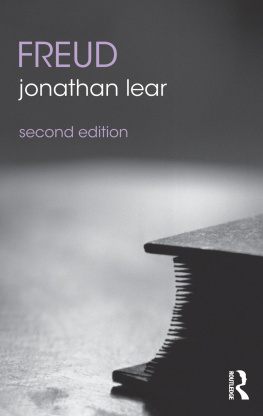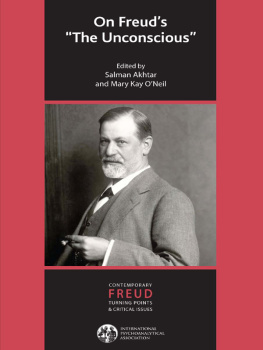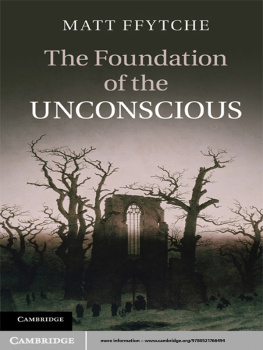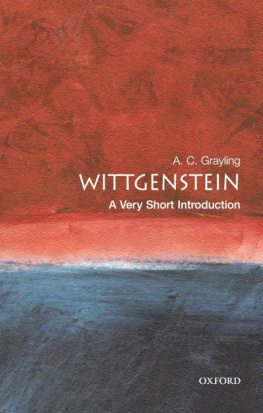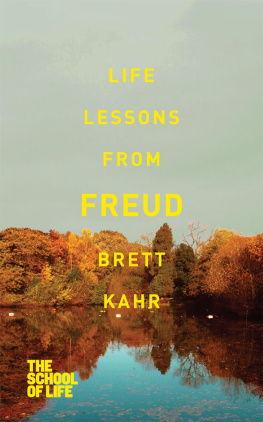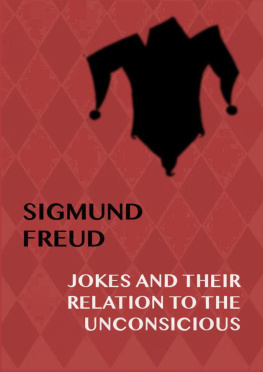Bouveresse - Wittgenstein reads Freud : the myth of the unconscious
Here you can read online Bouveresse - Wittgenstein reads Freud : the myth of the unconscious full text of the book (entire story) in english for free. Download pdf and epub, get meaning, cover and reviews about this ebook. City: Princeton, N.J, year: 1995, publisher: Princeton University Press, genre: Science. Description of the work, (preface) as well as reviews are available. Best literature library LitArk.com created for fans of good reading and offers a wide selection of genres:
Romance novel
Science fiction
Adventure
Detective
Science
History
Home and family
Prose
Art
Politics
Computer
Non-fiction
Religion
Business
Children
Humor
Choose a favorite category and find really read worthwhile books. Enjoy immersion in the world of imagination, feel the emotions of the characters or learn something new for yourself, make an fascinating discovery.
- Book:Wittgenstein reads Freud : the myth of the unconscious
- Author:
- Publisher:Princeton University Press
- Genre:
- Year:1995
- City:Princeton, N.J
- Rating:5 / 5
- Favourites:Add to favourites
- Your mark:
- 100
- 1
- 2
- 3
- 4
- 5
Wittgenstein reads Freud : the myth of the unconscious: summary, description and annotation
We offer to read an annotation, description, summary or preface (depends on what the author of the book "Wittgenstein reads Freud : the myth of the unconscious" wrote himself). If you haven't found the necessary information about the book — write in the comments, we will try to find it.
Bouveresse: author's other books
Who wrote Wittgenstein reads Freud : the myth of the unconscious? Find out the surname, the name of the author of the book and a list of all author's works by series.
Wittgenstein reads Freud : the myth of the unconscious — read online for free the complete book (whole text) full work
Below is the text of the book, divided by pages. System saving the place of the last page read, allows you to conveniently read the book "Wittgenstein reads Freud : the myth of the unconscious" online for free, without having to search again every time where you left off. Put a bookmark, and you can go to the page where you finished reading at any time.
Font size:
Interval:
Bookmark:

Wittgenstein Reads Freud

NEW FRENCH THOUGHT
SERIES EDITORS
Thomas Pavel and Mark Lilla
TITLES IN THE SERIES
Mark Lilla, ed., New French Thought: Political Philosophy
Gilles Lipovetsky, The Empire of Fashion: Dressing Modern Democracy
Pierre Manent, An Intellectual History of Liberalism
Jacques Bouveresse, Wittgenstein Reads Freud: The Myth of the Unconscious
FORTHCOMING TITLES
Blandine Kriegel, Sovereigns and Despots: A Case for the State
Alain Renaut, The Age of the Individual: A History of Modern Subjectivity
Marcel Gauchet, The Disenchantment of the World
Jacques Bouveresse
Wittgenstein Reads Freud
THE MYTH OF THE UNCONSCIOUS
Translated by Carol Cosman
With a Foreword by Vincent Descombes

Copyright 1995 by Princeton University Press
Published by Princeton University Press, 41 William Street,
Princeton, New Jersey 08540
In the United Kingdom: Princeton University Press, Chichester, West Sussex
Translated from the French edition of Jacques Bouveresse, Philosophie, mythologie et pseudo-science: Wittgenstein lecteur de Freud (Paris: 1991 Editions de lclat, 30250 Combas)
All Rights Reserved
Library of Congress Cataloging-in-Publication Data
Bouveresse, Jacques.
[Philosophie, mythologie et pseudo-science. English]
Wittgenstein reads Freud : the myth of the unconscious / Jacques Bouveresse ; translated by Carol Cosman ; with a foreword by Vincent Descombes.
p. cm. (New French thought)
Includes bibliographical references (p. ) and index.
ISBN 0-691-03425-7 (cloth)
1. Psychoanalysis and philosophy. 2. Wittgenstein, Ludwig, 18891951Views on psychoanalysis. 3. Freud, Sigmund, 18561939Influence. 4. Freud, Sigmund, 18561939. I. Title. II. Series.
BF175.4.P45B6813 1991
150.1952DC20 94-40607 CIP
Published with the assistance of the French Ministry of Culture
This book has been composed in Adobe Bauer Bodoni
Princeton University Press books are printed on acid-free paper and meet the guidelines for permanence and durability of the Committee on Production Guidelines for Book Longevity of the Council on Library Resources
Printed in the United States of America
10 9 8 7 6 5 4 3 2 1
Contents
by Vincent Descombes |
Foreword
BY VINCENT DESCOMBES
I N ITS ORIGINAL VERSION, Jacques Bouveresses essay on Wittgenstein and psychoanalysis bears both a title and a subtitle, each of them unusually explicit: Philosophy, Mythology, and Pseudo-Science: Wittgenstein Reads Freud. The subtitle, Wittgenstein Reads Freud, defines the books subjectnamely, Wittgensteins judgments on Freud and, more generally, his attitude toward the man and his enterprise. The title, Philosophy, Mythology, and Pseudo-Science, announces the ultimate thrust of the entire discussion by introducing three intellectual categories: a new idea can come from either philosophy, mythology, or science. We can see that among these three registers, which share responsibility for intellectual invention, science alone is opposed by a counterfeit called pseudo-science. Pseudo-philosophy does not seem to be a term we can use, much as we might be tempted to when dealing with what we think is bad philosophy. But philosophical speculation is such that everything that claims to be philosophy is philosophy. The price of this unlimited tolerance is that bad philosophy is as philosophical as good philosophy. Wittgenstein might say that bad philosophy is even more philosophical than good: not more philosophical in the sense of more profound or more solid, but rather in the sense of more representative of the characteristic temptations of philosophy, such as wrongly generalizing from a privileged example, or confusing the particularities of a mode of expression with the higher laws of being. The case of mythology presents a somewhat different picture, for mythological production is not the result of a specialized activity. A myth is what is told as a myth and what is transmitted as a myth; hence, we would not know how to distinguish false mythology from true mythology. Here again, we would speak instead of poor or insipid mythology rather than pseudo-mythology.
The French title of Bouveresses book does not require any explanation for a French reader, who would immediately understand why such questions were being posed in the context of French philosophy. And this is specifically the issue I would like to address on the occasion of the American translation, with the hope of assisting an intelligent reading of it. Indeed, the main subject of Bouveresses discussion is handled quite straightforwardly and needs no particular introduction. Readers will find in this book just what they are looking for: first, an attentive commentary on all the texts in which Wittgenstein mentions Freud, his ideas, and his therapeutic technique; and second, a discussion of all the literature on the question (in German, English, and French). But the particular French context in which it was first written and received deserves some explanation.
When Wittgenstein is speaking, his judgments bear on psychoanalysis as Freud defined it and disseminated it. But when Bouveresse brings together all of Wittgensteins texts under a title that entertains three possible designations that might be assigned to Freudian thoughtphilosophy, mythology, or pseudo-sciencehis own judgment embraces both the psychoanalysis that concerned Wittgenstein and the characteristically French psychoanalysis purveyed by Jacques Lacan, who, moreover, presented his entire enterprise as a return to Freud.
Early in this century, French philosophers behaved much like their colleagues in other countries in the face of psychoanalysis. Some did not show the slightest interest in the new doctrines coming from Vienna; others presented serious criticisms of this or that point, generally on moral or psychological grounds; and still others recognized the power and novelty of Freudian ideas and tried to give them a philosophical interpretation. Among these last, the names Jean-Paul Sartre and Maurice Merleau-Ponty have figured most prominently. After the war, their review Les Temps Modernes would welcome contributions from several renowned psychoanalysts, such as O. Mannoni and J. B. Pontalis. Still, Sartre was harshly critical of Freuds psychology, especially his determinism, and Merleau-Ponty suggested that Freudian theory, which was too naturalistic for his taste, might be corrected with a phenomenology of human subjectivity.
On their side, the first French psychoanalysts did not belong to any particular intellectual current and did not attribute much importance to the opinions of philosophers. They turned elsewhere, to the intellectuals or writers of the avant-garde, and especially to the surrealists, whether they were loyal to Andr Breton or dissidents like Georges Bataille and Michel Leiris. The surrealists were sensitive to a Romantic strain they thought they detected in Freud because of his interest in dreams and madness. They freely interpreted his notions of infantile sexuality and repression to buttress their argument in favor of uninhibited passion. In their circles, the absence of explicit criticism sat well with a quite selective appropriation. Freud, whose conservative literary tastes were well known, received the homage of the French surrealists cautiously and refrained from granting them the support of his intellectual authority.
Next pageFont size:
Interval:
Bookmark:
Similar books «Wittgenstein reads Freud : the myth of the unconscious»
Look at similar books to Wittgenstein reads Freud : the myth of the unconscious. We have selected literature similar in name and meaning in the hope of providing readers with more options to find new, interesting, not yet read works.
Discussion, reviews of the book Wittgenstein reads Freud : the myth of the unconscious and just readers' own opinions. Leave your comments, write what you think about the work, its meaning or the main characters. Specify what exactly you liked and what you didn't like, and why you think so.

